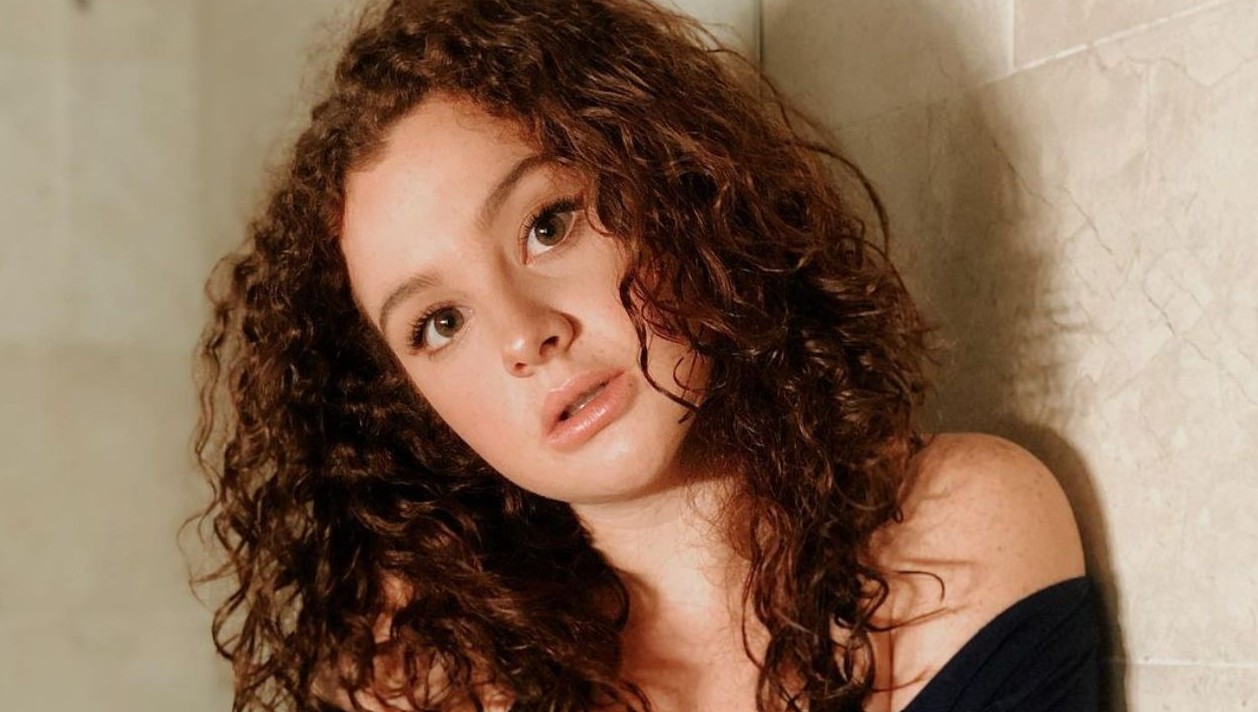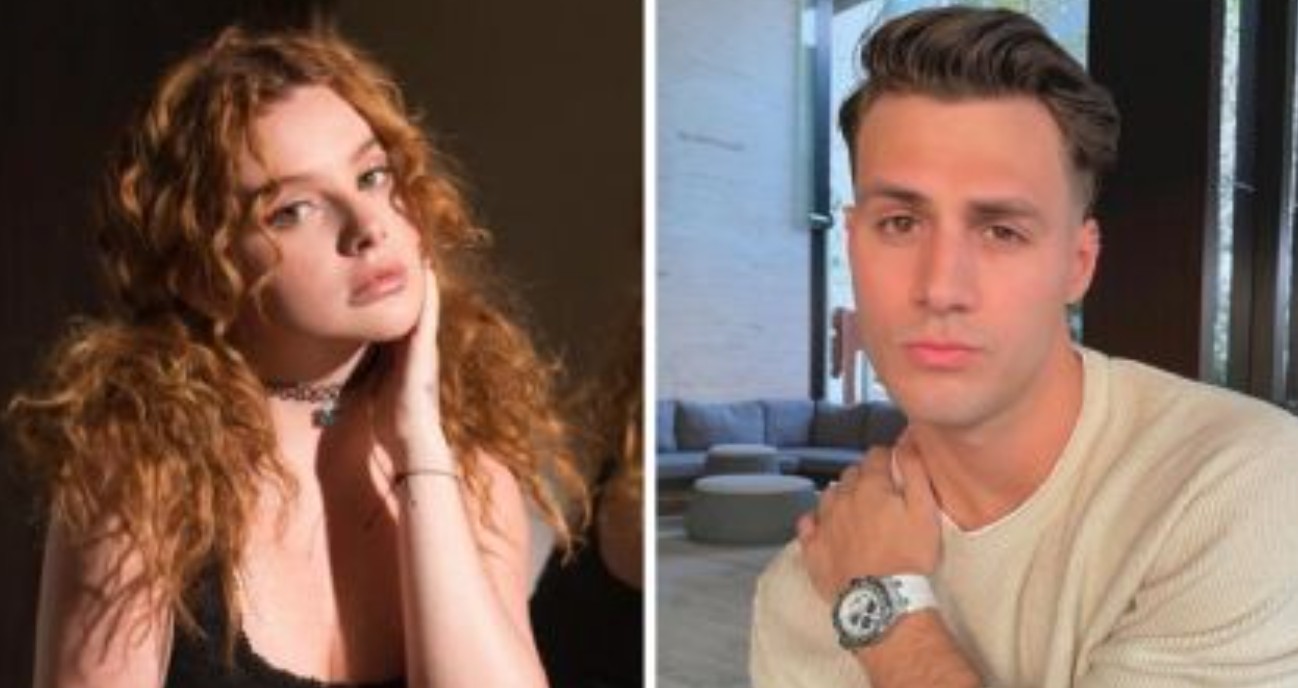Briggitte Bozzo is a Venezuelan-born actress, model, and social media influencer who rose to fame through her performances in popular Latin American television shows such as Silvana sin lana, Like, and Amar a muerte. With her youthful energy, striking presence, and growing online following, Briggitte has become a familiar face among fans across Latin America and beyond. Over the years, she has built a strong digital persona, sharing glimpses of her personal and professional life on platforms like Instagram and TikTok.

Recently, the video de Briggitte Bozzo has exploded across search engines and social media platforms, drawing massive public attention. The sudden spike in interest stems from the circulation of a viral clip allegedly linked to Briggitte Bozzo a video that has sparked curiosity, confusion, and intense debate among online users. As people rush to uncover the truth behind this trending topic, discussions about privacy, authenticity, and online responsibility have taken center stage.
This article explores the complete story behind the video de Briggitte Bozzo phenomenon from its mysterious rise to virality to the widespread public reactions it triggered. We will also examine the facts versus rumors surrounding the clip, its impact on Briggitte Bozzo’s reputation, and what this situation reveals about the power of social media in shaping public perception.
Contents
Breaking Down the Buzz Around Video de Briggitte Bozzo
The video de Briggitte Bozzo began trending after a short clip surfaced online and was quickly circulated across multiple platforms, including X (formerly Twitter), TikTok, and Telegram. Although the origin of the video remains unclear, users began sharing and resharing it with claims that it featured Briggitte Bozzo, sparking an intense wave of curiosity. Within hours, the keyword climbed to the top of search rankings in several Spanish-speaking countries, drawing massive engagement from fans and the general public alike.
What fueled the video’s viral spread was a mix of curiosity, controversy, and misinformation. Many users clicked and shared out of intrigue wanting to know whether the clip truly involved the popular actress while others used it as an opportunity to gain attention on social media by posting reactions, commentary, or “analysis” videos. This combination of speculation and gossip created the perfect storm for virality, as people continued to share the content without verifying its authenticity.
Video de Briggitte Bozzo Trending Everywhere The Shocking Truth Exposed
video-de-briggitte-bozzo-1.mp4
video-de-briggitte-bozzo-2.mp4
video-de-briggitte-bozzo-3.mp4
video-de-briggitte-bozzo-4.mp4
video-de-briggitte-bozzo-5.mp4
video-de-briggitte-bozzo-6.mp4
Adding to the momentum were hashtags and trending keywords such as #BriggitteBozzo, #VideoDeBriggitteBozzo, and #ViralVideo, which amplified visibility across platforms. Influencers and gossip pages joined the conversation, further pushing the story into the public eye. Each repost, reaction, and comment contributed to a snowball effect making the topic impossible to ignore, even for users who had never heard of Briggitte Bozzo before.
In today’s digital age, viral moments often thrive on emotional triggers and this situation was no different. The mix of shock, speculation, and online debate turned the so-called “video de Briggitte Bozzo” into a global talking point overnight, illustrating how quickly unverified content can dominate social media timelines and shape public narratives.
Background on Briggitte Bozzo
Briggitte Bozzo was born on August 19, 2001, in Caracas, Venezuela. From a young age, she showed a natural talent for performance and creativity, which led her to pursue acting early in life. Her career began with roles in Mexican television productions after she moved to Mexico with her family, where she quickly caught the attention of major producers for her charisma and strong on-screen presence.
Bozzo became widely recognized for her roles in telenovelas such as Silvana sin lana (2016), Like, la leyenda (2018), and Amar a muerte (2018–2019). These performances not only showcased her acting range but also helped her build a loyal fanbase throughout Latin America. Over time, Briggitte transitioned from traditional television to becoming a full-fledged digital personality, embracing the power of social media to connect directly with her fans.

On Instagram, Briggitte Bozzo shares a mix of personal moments, professional updates, and lifestyle content that resonates with her followers. Her posts often highlight fashion, beauty, travel, and glimpses into her daily life, earning her hundreds of thousands of fans who admire both her talent and authenticity. Meanwhile, on TikTok, she engages younger audiences with short, creative videos from dance trends to relatable skits which showcase her playful and confident personality. Her presence on YouTube further extends her reach, allowing her to connect with fans through longer-form videos, vlogs, and collaborations.
Briggitte’s connection with young audiences lies in her relatability and openness. She represents the modern generation of artists who blend entertainment and online culture seamlessly, using social media not just as a platform for promotion but as a space for self-expression. Her content reflects a vibrant and confident image that appeals to fans who see her as both an entertainer and an influencer they can identify with.
Briggitte Bozzo has built a multifaceted career that bridges traditional television and digital fame making her one of the most recognizable young figures in Latin American pop culture today.
Public Reaction and Online Discussion
As soon as the “video de Briggitte Bozzo” began spreading online, social media platforms exploded with reactions. On X (formerly Twitter), the hashtag #BriggitteBozzo trended for hours as users shared their thoughts, speculations, and memes about the situation. Some posts expressed shock and confusion, while others criticized how quickly the video was being shared without confirmation of its authenticity.
On TikTok, reaction videos and commentary clips gained millions of views, with content creators dissecting every detail of the rumor. Some users defended Briggitte Bozzo, calling for respect and privacy, while others fueled the controversy by reposting unverified claims. Discussions also extended to Reddit, where users debated whether the clip was real, edited, or completely fabricated. These online threads became battlegrounds between those who believed the viral content and those who urged caution.
The public response revealed a sharp divide between supporters and critics. Her loyal fans many of whom have followed her since her early acting days were quick to defend her character, describing the video as a baseless attempt to tarnish her reputation. They reminded others of how often public figures, especially women, become targets of online rumors and deepfake content. On the other hand, critics and skeptics demanded explanations, questioning why her name was attached to such a controversial clip in the first place.
Ultimately, the online discussion reflected a broader issue: how easily misinformation spreads in the age of virality. While some users sought truth and accountability, others treated the situation as mere entertainment turning a potentially harmful rumor into a trending spectacle.
Truth Behind the Video
As investigations and discussions unfolded, it became increasingly clear that the “video de Briggitte Bozzo” was not what many believed it to be. According to multiple reports and online analyses, the viral clip did not feature Briggitte Bozzo at all. The actress herself or her representatives addressed the situation indirectly, suggesting that the circulating video was false, misleading, and unrelated to her. This statement aimed to set the record straight and stop the spread of misinformation that could harm her professional and personal image.
Digital analysts and media experts also weighed in, pointing out that similar situations have occurred before where manipulated or mislabeled videos are falsely associated with celebrities to attract clicks and attention. This case serves as another example of how online rumors can spiral out of control before the truth even surfaces.
The situation underscores the importance of verifying information before sharing it. In the age of deepfakes and digital manipulation, even a short clip can mislead millions if shared without context or fact-checking. Users must remember that not everything viral is true and that spreading unverified claims can cause real damage to someone’s reputation.
In the end, the truth behind the “video de Briggitte Bozzo” reminds us that while the internet thrives on curiosity, it also demands responsibility. Recognizing the difference between fact and fiction is crucial both for protecting individuals like Briggitte Bozzo and for maintaining integrity in our online spaces.
Impact on Briggitte Bozzo’s Career and Reputation
The “video de Briggitte Bozzo” incident inevitably left an impact on the actress’s public image, at least in the short term. The initial wave of attention driven by speculation and sensational headlines overshadowed her professional work and created confusion among casual followers who were unfamiliar with the facts. However, as clarifications and official statements began to circulate, many fans rallied in her defense, reaffirming their support and calling out those who spread false claims.
In the short term, Briggitte faced a storm of public scrutiny, a challenge familiar to many public figures in the digital era. But in the long term, her reputation is likely to remain intact, especially given her loyal fan base and strong professional track record. Her quick response and continued engagement with followers helped her regain control of the narrative, reminding audiences of her authenticity and professionalism.
This situation highlights how celebrities handle viral controversies often through calm communication, transparency, and strategic silence when needed. By not fueling drama or engaging with false narratives, Briggitte demonstrated maturity and self-awareness, qualities that often strengthen a public figure’s credibility over time.
For influencers and fans, this episode serves as a lesson in digital literacy and empathy. It emphasizes the need to question what we see online and to avoid contributing to rumor-driven content. For influencers, it’s a reminder of how quickly reputations can be affected by misinformation; for fans, it’s a call to protect the people they admire by supporting truth and rejecting online toxicity.
The Broader Context: Viral Culture and Digital Responsibility
The “video de Briggitte Bozzo” trend is more than just a celebrity rumor it’s a reflection of how viral culture operates in the modern digital world. Today, a single piece of content, whether true or false, can shape public perception within hours. The internet rewards engagement, not accuracy, and this often leads to the rapid spread of unverified or sensational material.
Social media algorithms play a powerful role in amplifying such topics. Platforms like TikTok, X, and YouTube are designed to promote highly engaging content, pushing controversial or emotionally charged material into more users’ feeds. As a result, stories like Briggitte Bozzo’s can escalate before anyone verifies the facts. This cycle of instant virality reveals both the power and the danger of the digital age where visibility can come at the cost of privacy and truth.
To counter this, responsible viewing and sharing are essential. Users must take time to confirm information before reposting or commenting. Awareness, empathy, and critical thinking can help prevent the spread of misinformation. By engaging more thoughtfully, we can foster an online environment that values accuracy over attention and respect over ridicule.
The “video de Briggitte Bozzo” controversy demonstrates just how quickly a rumor can spiral into a global discussion in today’s interconnected world. What began as an unverified clip soon became a trending topic, drawing millions into conversations about truth, privacy, and reputation. Through it all, Briggitte Bozzo’s response and the support from her fans underscored the importance of resilience and authenticity in navigating public life.
This case also sheds light on the broader issue of digital ethics and online awareness. The internet gives everyone a voice, but it also gives rumors a stage. Recognizing the difference between curiosity and carelessness is essential if we want to build a healthier online culture.
In the end, the lesson is clear: truth should always outweigh sensationalism. As audiences and digital citizens, we hold the power to decide what spreads and what stops. Choosing responsibility over rumor not only protects individuals like Briggitte Bozzo but also ensures that social media remains a space built on integrity, respect, and truth.

